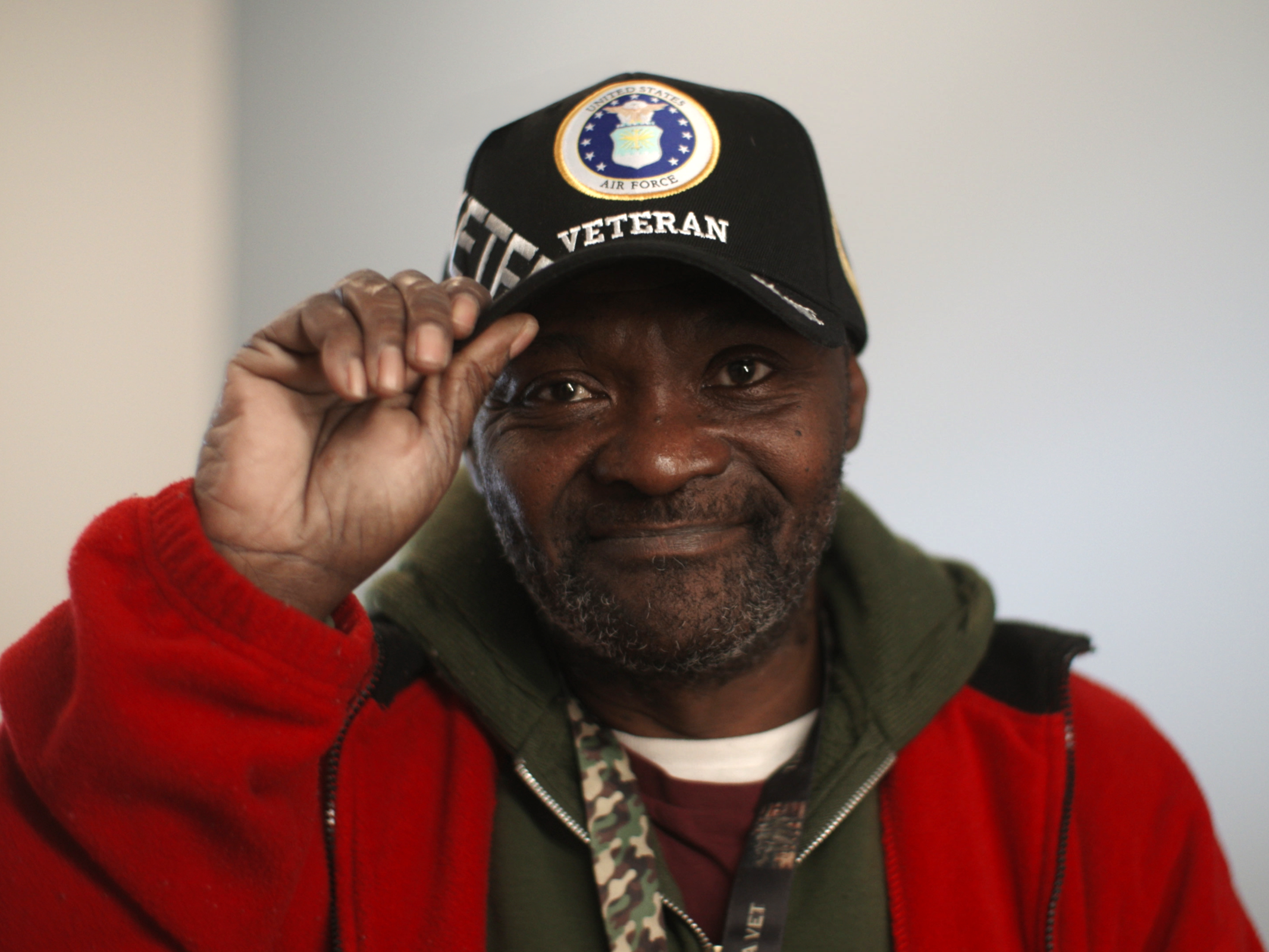Building a Decade Long Foundation
Scroll down to see key dates and developments.
- 2014:Detroit Land Bank Authority (DLBA) expands to include consolidated properties owned by various public entities.Nuisance Abatement Program allows DLBA to take ownership of vacant, blighted, or dangerous properties not in compliance.DLBA Compliance Team assists homebuyers in bringing or keeping their properties up to code, many of whom are first-time buyers.Neighborhood Stabilization Initiative pilot program launched to stabilize neighborhoods that were hardest hit by the housing downturn.
- 2015:Rehabbed & Ready Program rehabs vacant properties into homes ready for purchase.Detroit's 0% Interest Home Repair Program offers residents 10-year loans of $5,000 to $25,000.
- 2016:Buy Back Program provides a pathway to reclaim a home formerly lost to foreclosure.Own It Now (OIN) Program sells vacant homes as-is to blind bidders, starting at $1,000.Detroit Home Mortgage Program bridges the gap and helps to fund renovations both with a home and a secondary loan.Strategic Neighborhood Fund launched by City of Detroit and Invest Detroit to revitalize three neighborhoods.
- 2017:The Eddystone hotel to be transformed into 96 residential units.Choice Neighborhoods and Low-Income Housing Tax Credits Program develops new housing options for low-income households.
- 2018:Detroit Housing for the Future Fund launches and protects residents from displacement.Strategic Neighborhood Fund expands into a total of ten neighborhoods.Detroit's Multi-Family Affordable Housing Strategy created to preserve existing low AMI units and develop 2,000 new affordable units.
- 2019:$4 million Affordable Housing Leverage Fund ensures quality low-income homes.City of Detroit invests $10 million in Detroit At Work in career training and education.Mayor Duggan announces $1 billion goal for affordable housing investment.
- 2021:$4 million Delray Home Improvement Program helps eligible Delray neighborhood residents make home repairs.
- 2022:Mayor Duggan announces using $132 million in ARPA, state and federal funds to build 1,600 new affordable housing units-250 units permanently designated as supportive housing for those transitioning out of homelessness.Neighborhood Beautification Program gives grants of $500 to $15,000 to 34 Detroit-based block clubs, neighborhood associations, nonprofits, and faith-based organizations for public space improvements in their communities.Mayor Duggan allocates $3 million in ARPA funds to sell 20 to 50 DLBA-owned homes to local community development organizations.Mayor Duggan announces $203 million plan to convert vacant apartment buildings and Land Bank homes into affordable housing options for Detroiters.
- 2023:Detroit Duplex Repair Program allows qualified landlords to apply for grants up to $15,000 per unit for renovations and a rental certificate of compliance.Mayor Duggan creates the Detroit Housing Services office, providing direct case management, vital document help, employment assistance and housing leads for Detroiters in danger of homelessness.The City of Detroit invests $5 million in ARPA funds to bring more than 1,000 existing rental units into compliance.Down Payment Assistance Program grants qualified first-time homebuyers up to $25,000 for a down payment or other home purchase-related expenses.St. Pope Francis Center opens its Bridge Housing campus as transitional living for Detroit's unhoused.
- 2024:Detroit Housing for the Future Fund launches and protects residents from displacement.Mayor Duggan announces PILOT fast track to build the next $1 billion in affordable housing.City of Detroit housing officials announce a $6.1 million investment to renovate 389 units in eight aging low-income apartment buildings in Detroit's Hubbard Farms and Mexicantown neighborhoods in exchange for the owners keeping rents affordable for another 15-25 years.
Detroit's Plan is Solving the Affordable Housing Crisis
Affordable housing is a national problem. Cities like Tulsa, San Francisco, Dallas and Seattle have experienced an unprecedented housing crisis. What's unique to Detroit is how Mayor Mike Duggan, Detroit City Council and its residents cooperated to solve those challenges. In partnership with the Detroit City Council and with funds from the American Rescue Plan Act (ARPA), Mayor Duggan and the City of Detroit have committed to creating affordable housing for all Detroiters.
The city chose three distinct areas of action to focus on affordable housing:
- Invested $1 billion in affordable housing projects to provide renters housing stock.
- Created pathways for current homeowners to stay in their family homes by making needed repairs and decreasing tax burdens.
- Provided housing security for the unhoused, including access to medical and mental health assistance, helping to decrease stable housing obstacles.
What is Affordable Housing?
Affordable housing is generally defined as housing where an occupant is paying no more than 30% of gross income (actual salary before deductions and taxes) for housing costs. This number includes utility costs. Any household paying above 30% is considered housing-cost burdened. The Detroit Justice Center cites a report from Detroit Future City that shows Black Detroiters are housing-cost burdened at higher rates than their white neighbors due to high housing costs and lower incomes. It was this type of wealth chasm that Detroit intended to address in its affordable housing agenda.
Area Median Income
The Detroit-Warren-Livonia Area Median Income (AMI) for a single low-income occupant was $53,700 annually in 2024. According to the Inclusionary Housing Plan, most of Detroit's pre-existing housing units have rents between the 31% to 50% AMI levels. This issue is not unique to Detroit as the entire nation struggled to respond to a recession and housing crisis.
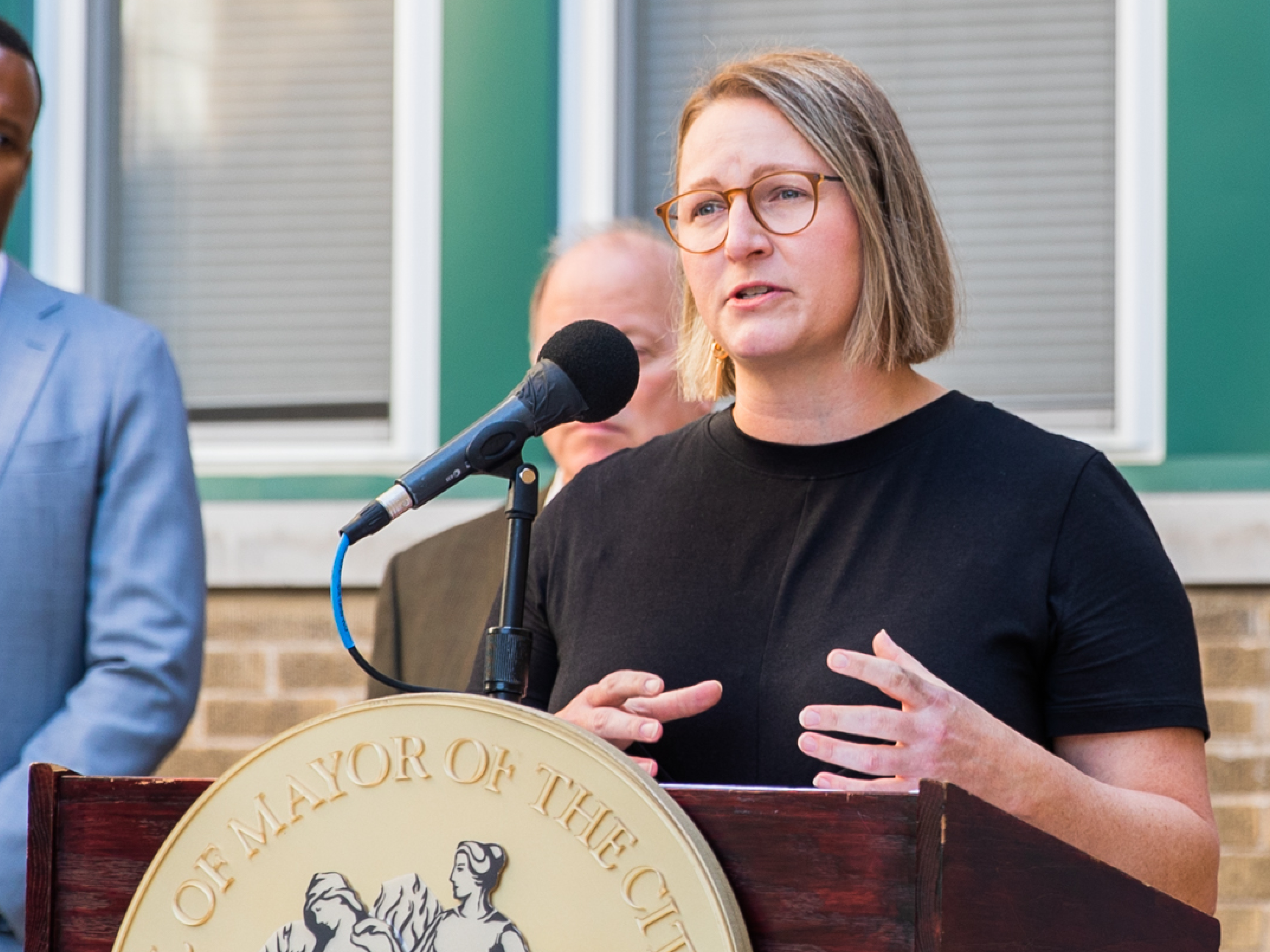
Step One: Stabilizing the Home Lending Market
Stabilizing Programs
The City of Detroit wanted to provide stability to avoid displacing Detroiters. They implemented initiatives to restart Detroit's housing market. This meant they needed assertive programs to preserve affordable housing and protect tenant retention. It was this desire that drove the creation of three pivotal housing programs.
0% Interest Home Repair Program
Detroit's 0% Interest Home Repair Loans Program provides loans between $5,000 and $25,000 to help homeowners repair and improve their homes. These loans help to increase property values while revitalizing Detroit's neighborhoods and creating a financially solid approach to home repairs.
Detroit Home Mortgage Program
Launched in 2016, the City of Detroit uniquely approached home mortgage and home repairs. Many hopeful homeowners were unable to secure mortgages on homes that required repairs based on low appraisals which would increase the amount needed for a down payment. The Detroit Home Mortgage Program aimed to dismantle some of the barriers to buying. It was created to assist eligible Detroiters in achieving homeownership by offering construction and renovation loans for home repairs. The program offers two loans: a first loan that covers 96.5% of the appraised value and a second loan that covers up to $75,000.
Detroit Land Bank Authority's (DLBA) Rehabbed & Ready Program
In cooperation with Rocket Mortgage, the DLBA's Rehabbed & Ready Program helps the city renovate vacant or blighted homes into move-in ready properties. DLBA chooses a blighted property and then the Rocket Community Fund provides repair funding. Once the rehab is complete, the city can then sell the property at fair market value. Home Depot, in cooperation with local contractors, performs the home repairs.
Tammy Daniels, the DLBA's CEO said, "We have a program called Rehabbed & Ready. In all of the neighborhoods that we have worked, every neighborhood has seen tremendous growth in their property values."
By 2015, the Land Bank expanded its reach by implementing eight new programs under its Auction and Own It Now platforms to place Detroiters into reclaimed homes. As of November 2024, 16,034 homes have closed, creating new homeowners and helping to stabilize Detroit's neighborhoods.
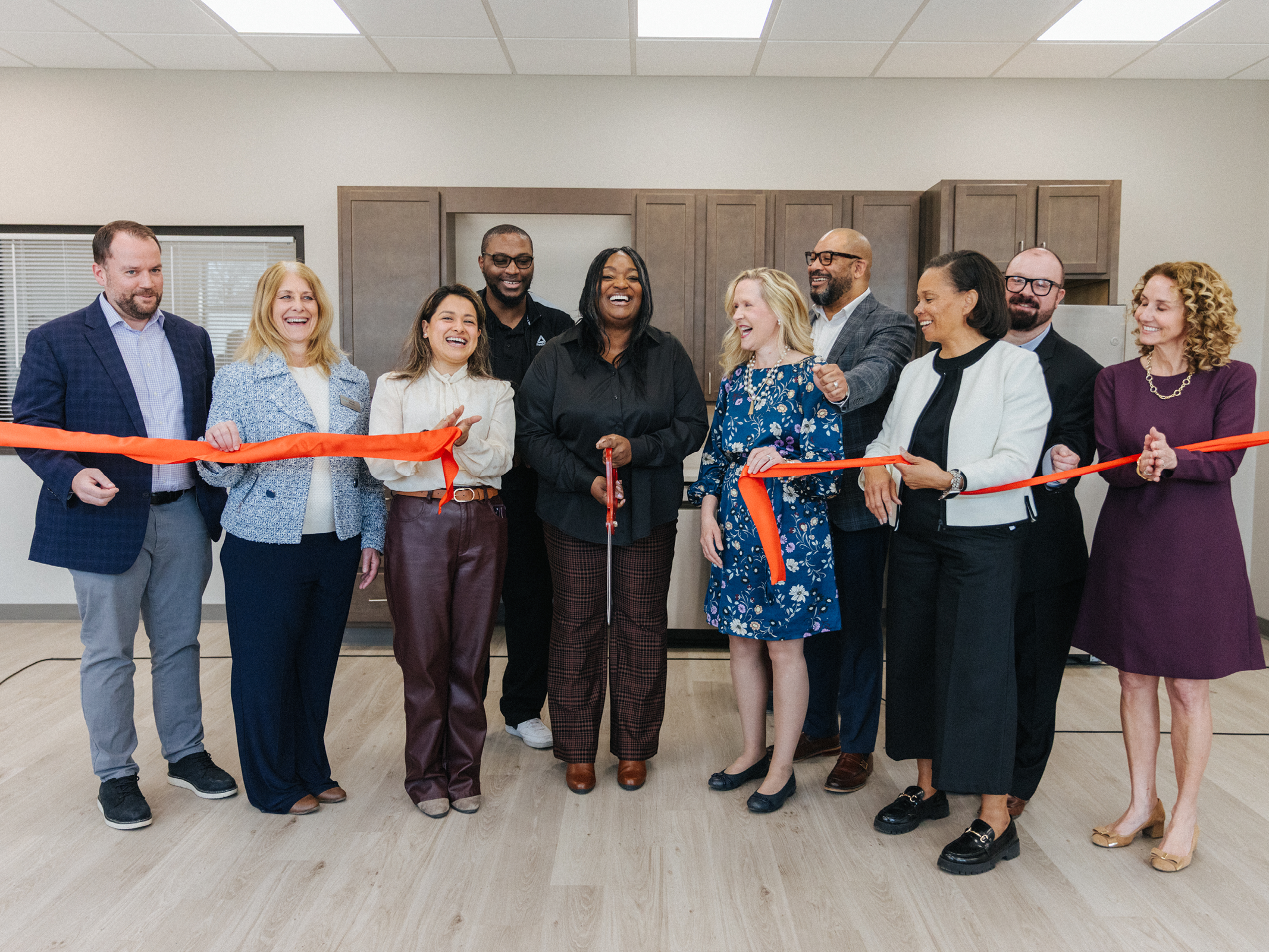
Step Two: Easier Path toward Homeownership
Create a Protected Supply of Affordable Housing
The city needed a larger inventory of affordable units and housing that addressed the needs of families as well as single occupancy.
To fill the city's substantial affordable housing gap, the Mayor and the City of Detroit first turned toward new construction. But there were dangers here. Residents, particularly those who stayed when so many migrated away from Detroit, feared they would be priced out of the new affordable housing construction. It's why the plan for affordable housing construction remained aggressively focused. This meant their vision must include affordable housing where every Detroiter, regardless of their income or physical abilities, could live in quality housing that supports their needs at a rent they could afford.
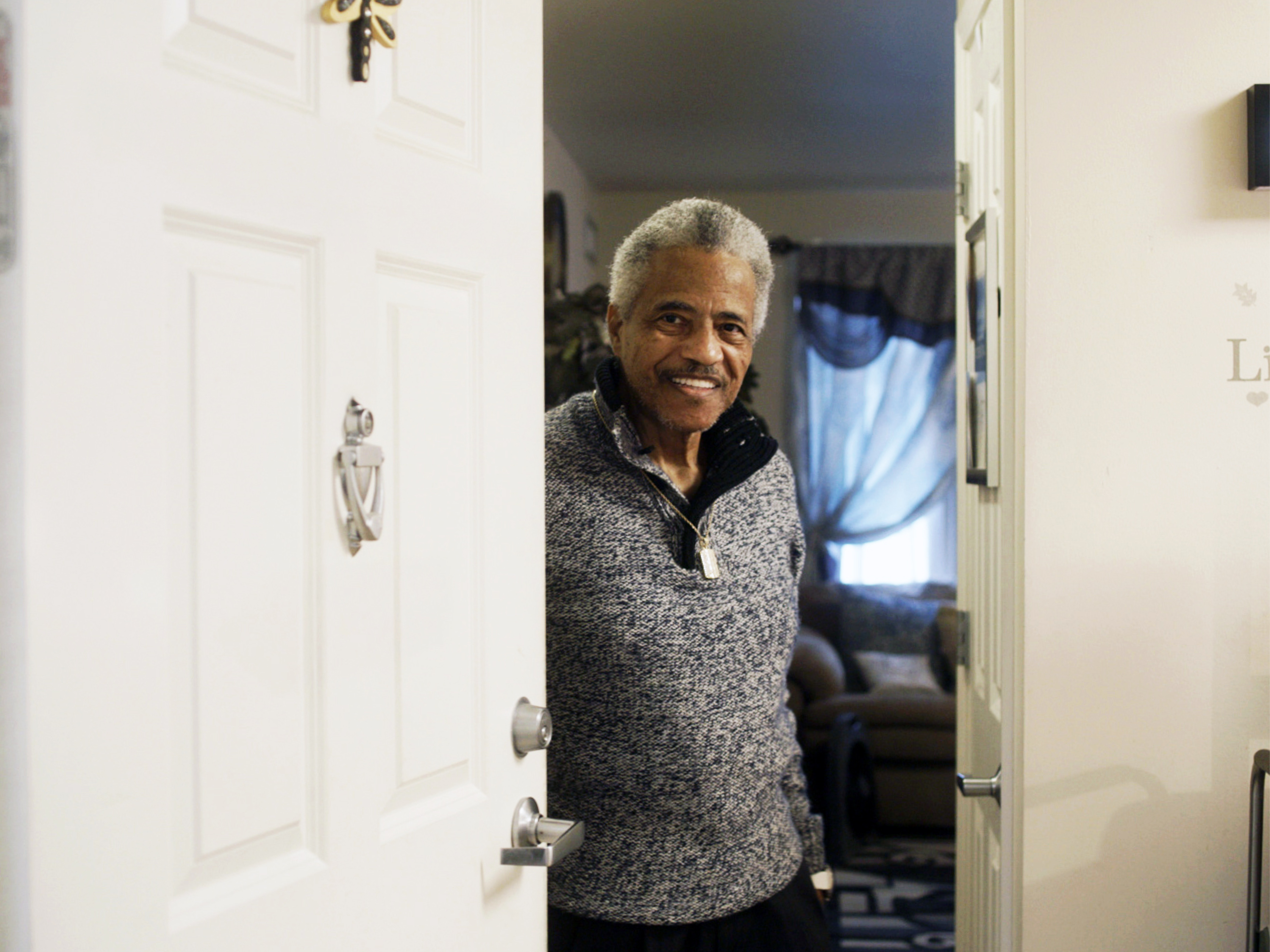
Housing Preservation
The City of Detroit focused on ensuring that residents could remain in their homes at affordable rates. To take care of those who stayed, the city created multiple programs aimed at preserving affordable housing in a city whose home values were rising among the fastest in the nation.
Some of these efforts turned toward the workforce through the Detroit at Work program that equips a local talent pool to earn living wages in order to buy or keep their homes.
In 2018, Detroit created the Detroit Preservation Action Plan to strategize their affordable housing preservation plan. They identified two types of affordable housing: regulated affordable housing units—those publicly funded and/or have rent restrictions and, naturally occurring affordable housing units—accessible to low-income residents when rented or sold at market rate.
They identified the two main risks to affordable housing as the rising market values and functional obsolescence of Detroit's older housing stock. Its remedy to those risks focused on preventing the units for working, aging, low-income and vulnerable residents from disappearing. They set about to preserve the affordability of 10,000 housing units by 2023, a goal they accomplished.
The Strategic Neighborhood Fund
Mayor Mike Duggan, in partnership withInvest Detroit and the City of Detroit, created the Strategic Neighborhood Fund (SNF) initiative in 2016. SNF's focus is to foster "inclusive and resilient growth in Detroit's neighborhoods " to revitalize the city's most treasured communities. It aims to revitalize neighborhoods by investing in infrastructure, supporting small businesses and creating jobs. Mayor Duggan appointed Arthur Jemison as Group Executive of Housing, Planning and Development to start the SNF initiative in partnership with David Baker and Invest Detroit. Donald Rencher later took leadership, coordinating closely with the city's Planning Department Deputy Katy Trudeau. In all, 19 philanthropic organizations and corporate sponsors partnered to support the SNF.
The SNF's main task is to center the unique needs of each neighborhood through investment in residents and small businesses, leading to stronger and more resilient communities throughout Detroit. They intentionally match SNF properties with local developers of color.
Nate Barnes, Invest Detroit's Vice President of Neighborhoods, said, "To date, we've matched five SNF properties with Detroit-based developers of color. We are always keeping in mind the questions of who gets to participate in developing the future look and feel of this city, and what we can do to support homegrown development professionals eager to rebuild our neighborhoods. "
The fund has raised $75 million from 19 philanthropic funders, which has leveraged over $262 million in new investment in commercial corridors, affordable housing and parks across 10 neighborhoods. The neighborhoods are spread among different council districts across the city.
SNF is creating vibrant, walkable and livable neighborhoods that align with and enrich Detroit's history and culture.
The SNF applies its funding through the lens of its five guiding pillars:
- Neighborhood Framework Plans ($4.2 million invested)
- Commercial and Mixed-Use Development ($139.9 million)
- Streetscapes ($83 million)
- Parks and Open Space ($27.3 million)
- Housing Stabilization ($7.4 million)
The SNF has rolled out in three phases commencing in 2016 with Phase I including three multi-neighborhood areas: the Villages, Livernois-6 Mile, and Southwest. Phase 2 began in 2018, expanding to seven more neighborhoods including Gratiot-7 Mile, Jefferson Chalmers, and Warrendale-Cody Rouge. The latest, Phase 3, forecasts raising $40 million for neighborhood revitalization.
The SNF has committed over 70% of its projects to developers of color or local community development organizations.
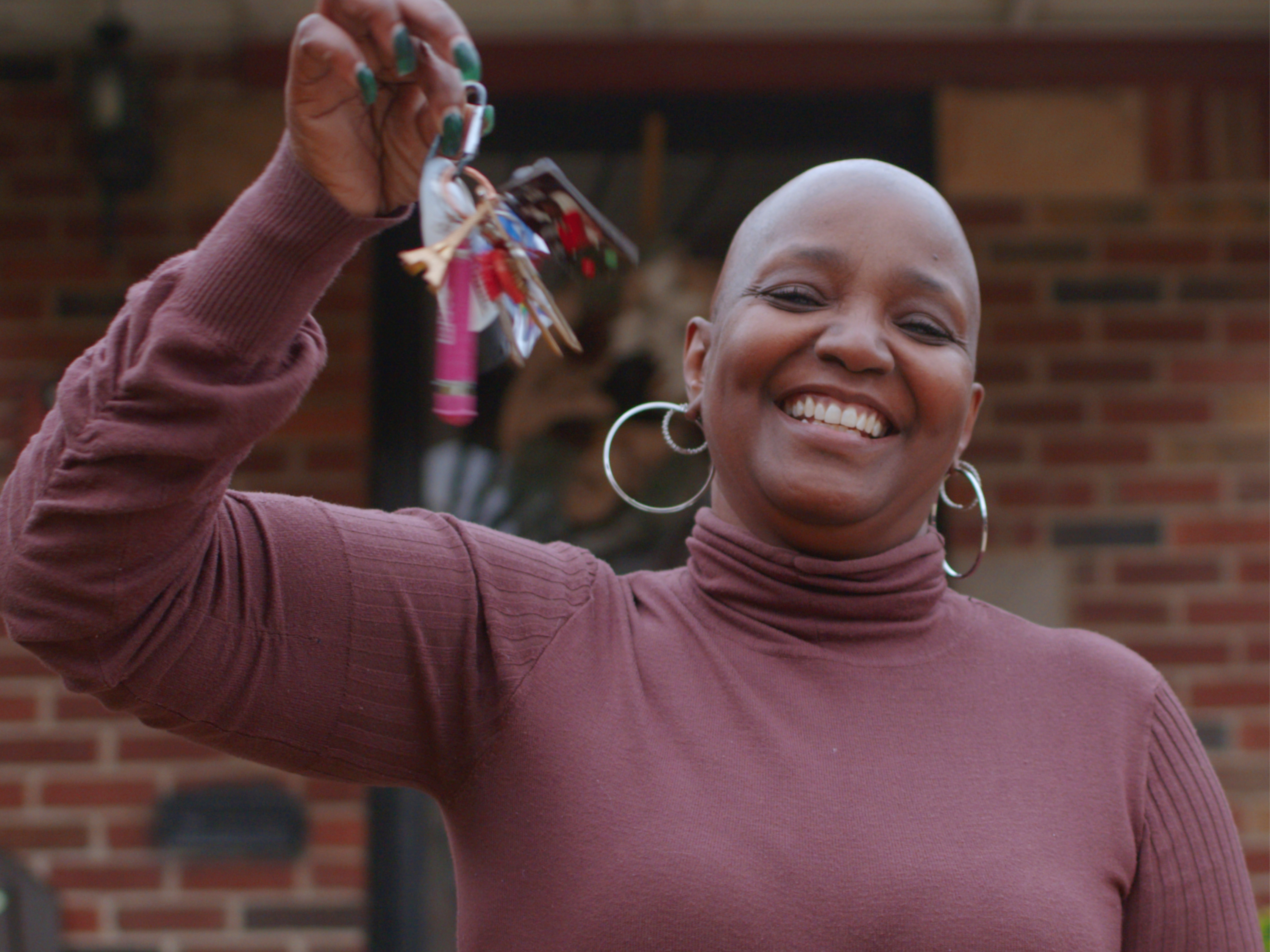
Bridging Neighborhoods
In 2024, the cable-style Gordie Howe Bridge connected Detroit to Windsor, Canada. The project was funded through public-private partnership and is one of the top five longest bridges in America.
The City of Detroit created the Bridging Neighborhoods initiative to mitigate the impact on the Southwest Detroit homes located in the shadow of the bridge. The $6.5 million environmental mitigation program is funded through the Home Repair and Home Rehab Programs. Bridging Neighborhoods offered a Home Swap option to the 60 households who wished to relocate to unaffected neighborhoods throughout the city.
The city also completed 174 retro-fits of Southwest Detroit homes affected by the Gordie Howe Bridge Project to address the bridge's environmental impact. These upgrades include double-pane windows to improve noise reduction and HVAC systems to assist with air purification and decrease air pollutants.
Rico Razo, the director of Bridging Neighborhoods, at its 2019 inception, said, "We canvassed the neighborhood, made calls, held meetings and mailed literature to make sure every eligible resident could take part in the upgrades. Two phases and 174 mitigations later, hundreds of residents are now sleeping better, breathing better and living more comfortably in their homes. "
The $1 Billion Affordable Housing Investment
Mayor Duggan, together with City Council, created a five-year plan in 2018 with a major emphasis on increasing the affordable housing inventory. This vision called for the development and preservation of 12,000 units. In addition to new construction, the city renovated formerly vacant buildings to create 3,036 affordable housing units.
All of Detroit's affordable housing will be protected for 30 years, meaning the rents cannot rise above 30% of the renters income during this protected period.
How Detroit Funded Its Programs
This significant level of investment was realized through the work of Detroit's development community which acted to both preserve and create affordable housing.
Detroit's major investor, the Detroit Housing for the Future Fund (DHFF), is a private investment fund that provides low-cost loans and predevelopment grants to developers of color. Additionally, DHFF offered $58 million in philanthropic funds to invest in Detroit's affordable housing inventory.
The City of Detroit also partnered with various funding contributors, including the U.S. Department of Housing & Urban Development and the Michigan State Housing Development Authority.
In addition, $250 million from the Affordable Housing Leverage Fund was dedicated to preserve 10,000 units of affordable housing and develop 2,000 additional new-construction affordable housing units.
The total development costs, including new construction and renovation of existing affordable housing, are expected to total $1,009,177,000.
Of the $12.7 million in HUD funds directed to Detroit, $3.8 million went to neighborhood planning and $8.9 million went to lead removal, home repair and public facility rehab. None of the HUD funds were used for single-family stabilization or commercial corridors.
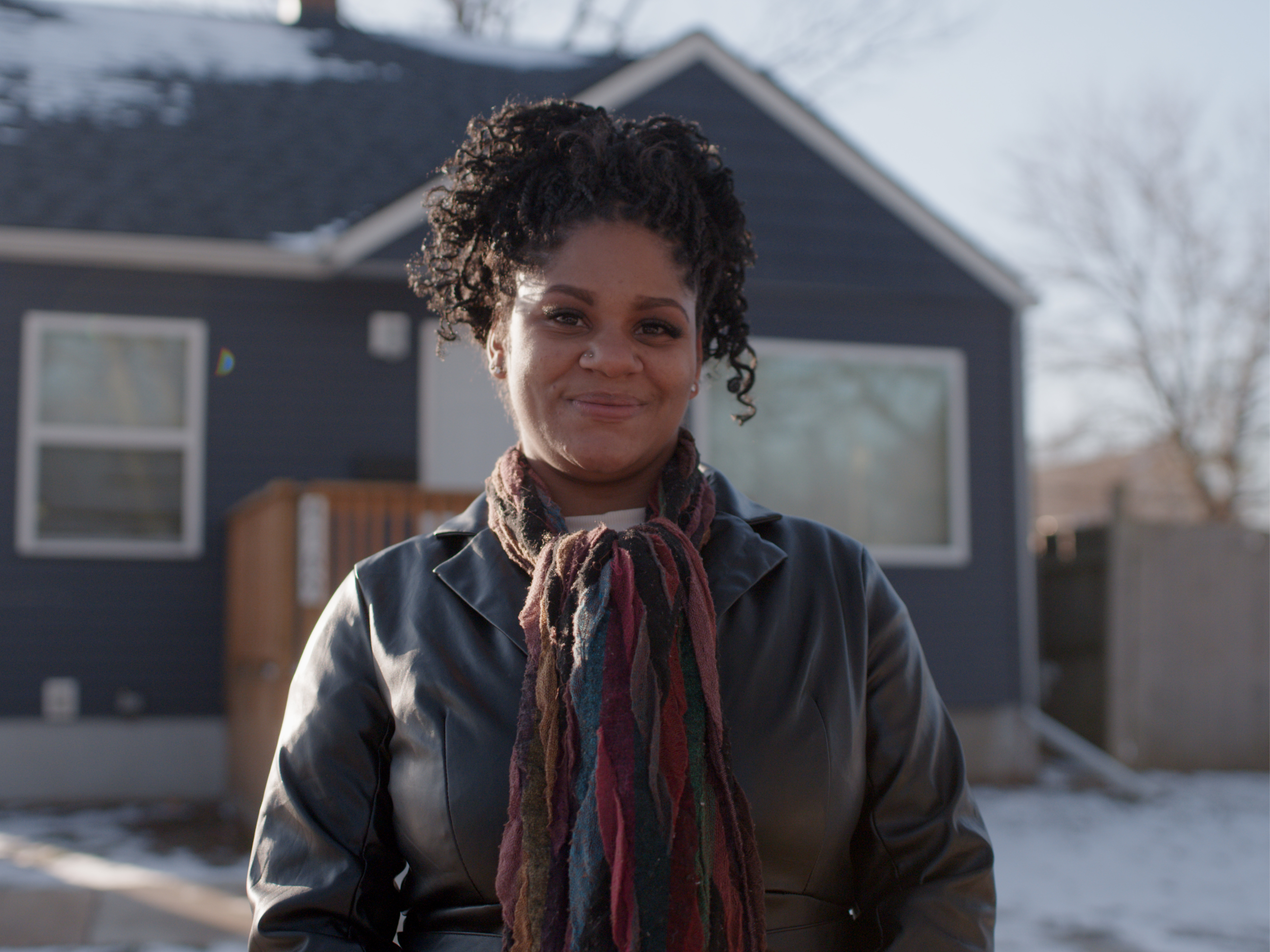
Step Three: Blight Removal
Detroit Creates an Unprecedented Online Housing Inventory
Detroit sat in the unique position of a city with 40,000 vacant houses at the start of Mike Duggan's election as Mayor. His focus was always to reclaim neighborhoods.
"Every neighborhood has a future, " Mayor Duggan said. "Nothing makes any neighborhood feel more forgotten than the blight of abandoned houses. "
To implement this vision, the City of Detroit expanded the Detroit Land Bank Authority (DLBA), creating the nation's largest housing inventory. The DLBA began converting vacant apartment buildings and Land Bank homes into affordable rental housing.
Down Payment Assistance Program:A Pathway to Home Ownership
To overcome the hurdle of homeownership, the City of Detroit created the Down Payment Assistance Program (DPA) which offers up to $25,000 to cover the costs of a down payment on a home purchase. To qualify, Detroiters must live in the city for at least one year. Those who lost their homes to tax foreclosures also qualify. The program is funded from $17 million from the American Rescue Plan Act (ARPA).
"When we started the program, we didn't understand the dramatic impact it was going to have on the people of Detroit, " said Julie Schneider, director of the city's Housing and Revitalization Department.
The $203 Million Plan
As part of the $1 billion investment creating new affordable housing, the city's administration and Detroit's City Council created a$203 million seven-point plan to solve the city's affordable housing needs, particularly for those who stayed.
The City of Detroit created theDetroit Housing Network (DHN) to provide Detroiters housing counseling resources necessary to successfully navigate Detroit's housing market. The DHN is a coalition of housing advocates who connect Detroit residents to housing services and programs. Their goal is to provide housing stability and affordable homeownership in Detroit, while also creating healthy neighborhoods and advancing racial equity.
Point One
Using $20 million in ARPA funds, the City of Detroit and Mayor Duggan created the Detroit Housing Services Office to connect service providers with at-risk Detroiters and launched the Detroit Housing Resource Helpline.
Within this housing service, at least six DHN neighborhoods service centers were commissioned to be run by nonprofit providers. They will serve as one-stop-shop resources to connect present and future Detroit homeowners with a full range of programs, including housing counseling and foreclosure prevention services.
Point Two
The Detroit Housing Commission provided $20 million to rehab the numerous smaller apartment buildings (20 to 30 units) to turn vacant or blighted buildings into affordable housing units for Detroiters.
The Detroit Housing Commission (DHC) will fund this plan by selling the Brewster-Douglass site to create financing. Additionally, it will leverage opportunities to rehab small- and medium-size multifamily apartment buildings as deeply affordable housing.
Point Three
The City of Detroit announced plans to use $3 million in ARPA funds to sell 20 to 50 DLBA-owned homes to local community development organizations (CDOs), which will use City of Detroit subsidies to rehab the properties.
The community partners will then rent the homes for a minimum of 10 years at 50% to 60% of AMI. These contracts will provide renters the option to buy the property and become homeowners.
Point Four
City Council and the Detroit Housing and Revitalization Department used ARPA funds to earmark the construction of 1,600 new affordable housing units—250 units permanently designated as supportive housing with access to a range of services for those transitioning out of homelessness.
Point Five
In their ongoing effort to transform renters into homeowners, the city's Housing and Revitalization Department initiated the Down Payment Assistance Program using $25 million in ARPA funds. Since its inception, it has helped over 600 Detroit renters close on their own homes with the help of a $25,000 down payment grant. DPA could become a national model.
Point Six
The City of Detroit created a three-pronged approach to invest $3 million in ARPA funds, focusing on landlord compliance through educational programs for small-scale landlords. This program, focusing on rental code compliance, vacant second floor rehabs and property management training, is meant to ensure Detroiters live in safe, affordable housing. Additionally, the city invested in building commercial corridors within Detroit's neighborhoods as part of the neighborhood stabilization effort.
Point Seven
Because rent prices continue to increase as Detroit reclaims itself, Mayor Duggan and the City of Detroit set aside $100 million in ARPA funds for a comprehensive Detroit at Work Program that assists Detroiters with job and skills training, job placement and Learn to Earn programs including literacy and GED programs.
Create Pathways for Current Homeowners to Stay Despite Needed Repairs and Tax Burdens
More than one in seven Detroit homes required major home repairs, according to a University of Michigan study in 2021. The study tallied 37,630 households living in inadequate housing, affecting 90,690 people. In 2020, 13% of these houses were deemed "inadequate, " meaning they had major problems with electrical needs (including exposed wires), furnaces or other heating problems. Possibly, they lacked hot or running water in the past year.
According to a national study, unhealthy homes contribute to the home-value racial wealth gap of 8 to 1 between white and Black homeowners. Homes that require repairs or struggle to remain within compliance hold a lower value than healthy homes.
Senior and low-income homeowners also faced challenges building generational wealth for their families. The City of Detroit created two programs to remedy the aging, unsafe housing problem in Detroit.
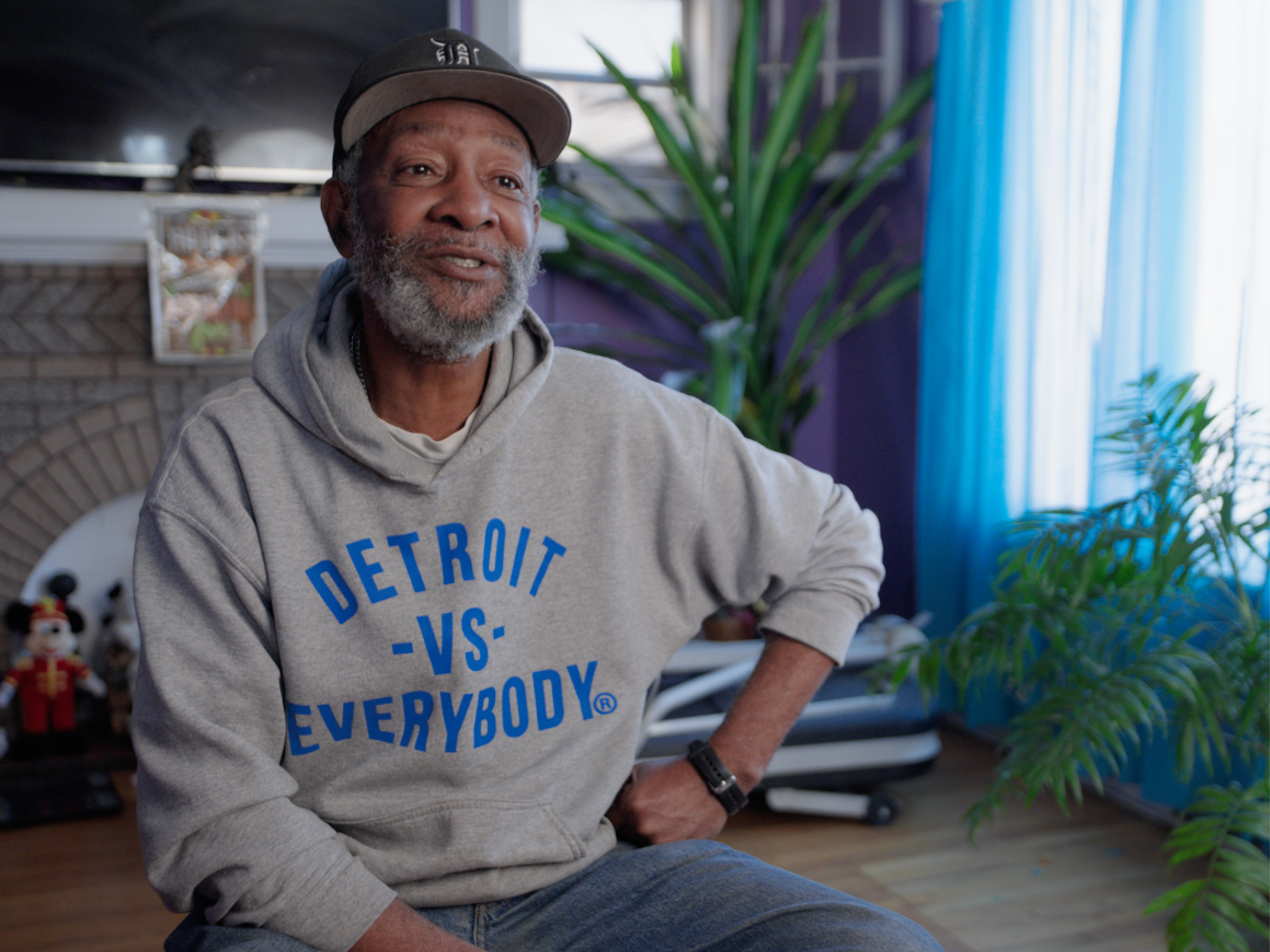
Home Repair Program
To assist homeowners in making essential repairs, some of them safety related, the City of Detroit implemented the Home Repair Program. It provides 0% interest loans from $5,000 to $25,000 for Detroit homeowners to invest in and repair their homes. The program addresses public health and safety, and gives residents the opportunity to secure and maintain homeowner's insurance. These repairs keep the household and inhabitants safe, but beyond that, they increase the home values which creates generational wealth for the next generation.
Renew Detroit Repair Program
Established in 2021 with $45 million in ARPA funding, the Renew Detroit Program targeted homes for low-income and seniors in need of roof and window repairs. The budget estimated home repairs for up to 2,000 homes. Over 4,000 Detroiters participated in community meetings to help craft the program with city planners, which commenced in two phases.
Phase One of Renew Detroit concentrated on repairing or installing roofs using $20 million in ARPA funds. Phase Two allows for a choice between roof repair or new weatherized windows. All repairs and installations are performed at no cost to the homeowner.
Detroit's Tax Relief Solution
The national recession deeply impacted home mortgages, resulting in foreclosures. The poorly performing housing market was one of a cascading array of issues pouring from the Great Recession of 2007-2009. Detroit did not escape the crisis. Between 2005 and 2015, nearly half of Detroit's mortgages were in danger of foreclosure.
To remedy this issue and help Detroiters remain in their family properties, the City of Detroit created two unique tax relief programs.
The Homeowners Property Exemption Program (HOPE) allows those struggling to pay their property tax, reductions or complete eliminations of their current tax bill. The program is wildly successful with over 12,000 Detroiters served in 2023.
The second program addressed the burgeoning past debt through an initiative called Pay As You Stay (PAYS), which sets up a payment arrangement for past due taxes. The intention of these programs is to allow homeowners an avenue to avoid foreclosure by offering tax debt relief.
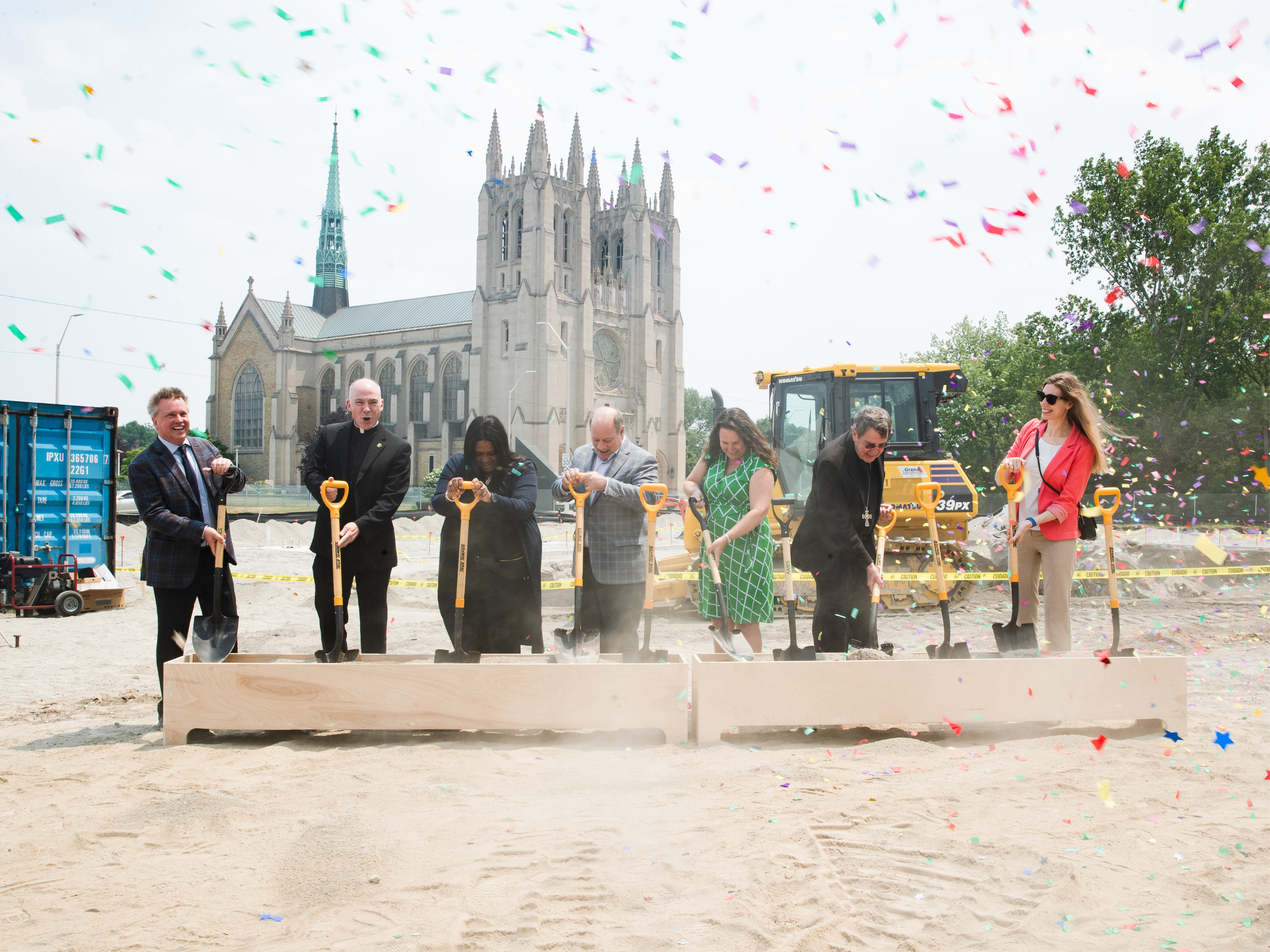
Providing Housing Security for the Unhoused
Detroit's Historic Homeless Story
In 2014, Detroit's unhoused population had risen to about 16,200. Nearly 2.4% of Detroiters were living without stable housing. By 2017, thanks, in part to the city's cooperation with local nonprofits like Homeless Action Network of Detroit (HAND), that number decreased to just over 13,000 people experiencing homelessness during that year. Through continued partnership and innovation, homelessness further declined to about 6,000 in 2022.
The City of Detroit paid particular attention to its veterans when it provided the nationally acclaimed Built for Zero resources to Detroit veterans. Built for Zero, developed by the nonprofit Community Solutions, hopes to end homelessness and to reach "functional zero, " a milestone indicating that fewer people are experiencing homelessness than exiting homelessness. This means Built for Zero works to keep the number of people requiring housing below the capacity to house them.
Detroit has reduced veteran homelessness by nearly 50% since 2020. This work continues to be a top priority; between January 2018 and September 2022, Detroit permanently housed 1,175 veterans.
Mayor Duggan and City Council designed a five-year strategic plan to "prevent and end homelessness. " The city developed eight action areas, including improving shelter facilities, increasing shelter staff, expanding affordable housing and reducing youth and veteran homelessness.
The plan was created through a partnership with the city's Housing and Revitalization Department, HAND and the Detroit Continuum of Care.
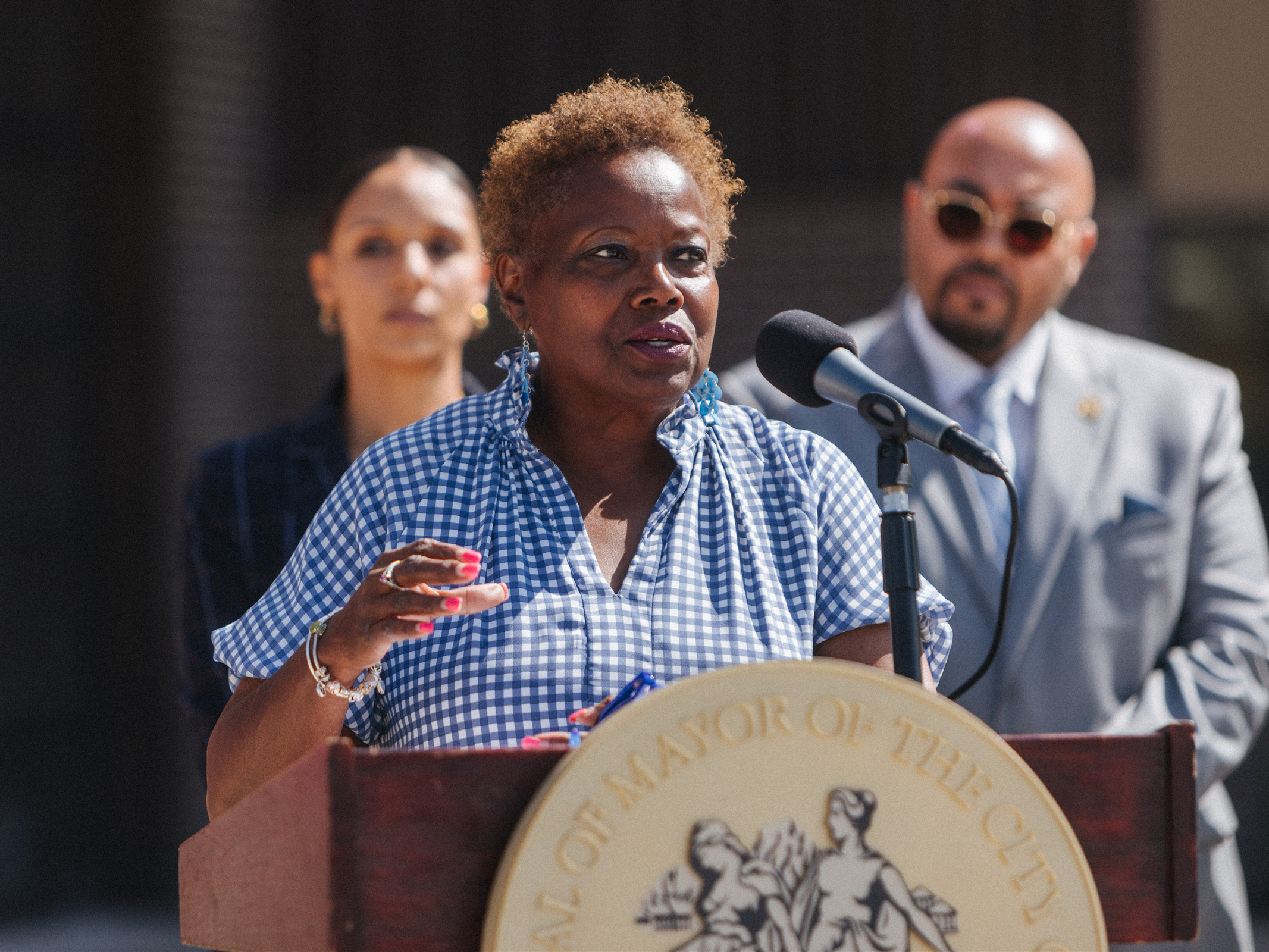
Detroit's Eight-Point Roadmap to Homelessness Reduction
- Strengthen and reimagine shelters to provide effective, trauma-informed services in high-quality facilities. Work to reduce shelter time and create pathways toward housing stability and positive life outcomes.
- Expand housing supply and build an effective rehousing system to connect people to safe, stable and affordable housing as they transition from homelessness.
- Reduce unsheltered homelessness by offering solid connections to housing and other resources.
- Provide support, training and compensation to staff, enabling them to provide high-quality services to residents and clientele.
- Include voices of those who have experienced homelessness to create equity and justice within the programs and services.
- Increase federal, state and local funding to both prevent and resolve negative experiences of homelessness and improve the quality of programs.
- Increase focus on improvement efforts centered on Detroit's coordinated entry system, youth homelessness and veteran homelessness.
- Create appropriate staffing, governance and partnership structures to successfully implement all plan activities.
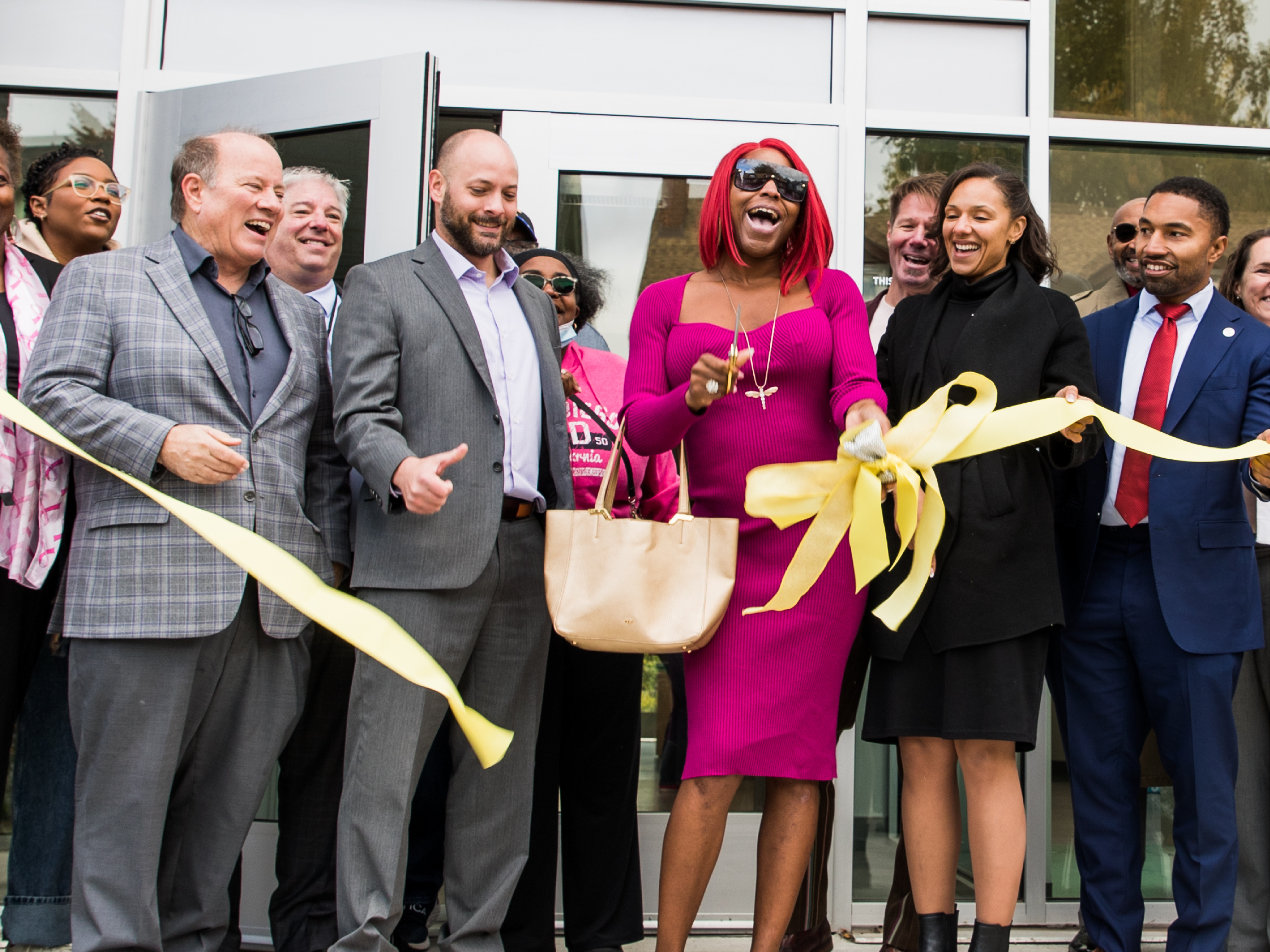
Neighborhood Service Organization
The city contracts with over a dozen nonprofit organizations that provide a wide range of services to help residents prevent or resolve their homelessness. One such agency is Neighborhood Service Organization (NSO).
NSO is a Detroit based service that integrates health and human services for Detroit's housing vulnerable population. It provides community-based services and holistic programs to overcome housing, health and well-being barriers. NSO provides both street outreach and emergency shelter as well as permanent housing.
A recent accomplishment was the construction of Clay Apartments, which has 42 units of permanent supportive housing (PSH) for those with long histories of homelessness and disabilities. PSH provides income-based housing with case management services. Clay Apartments is part of Detroit Health Housing Campus which is helping to end homelessness in Detroit.
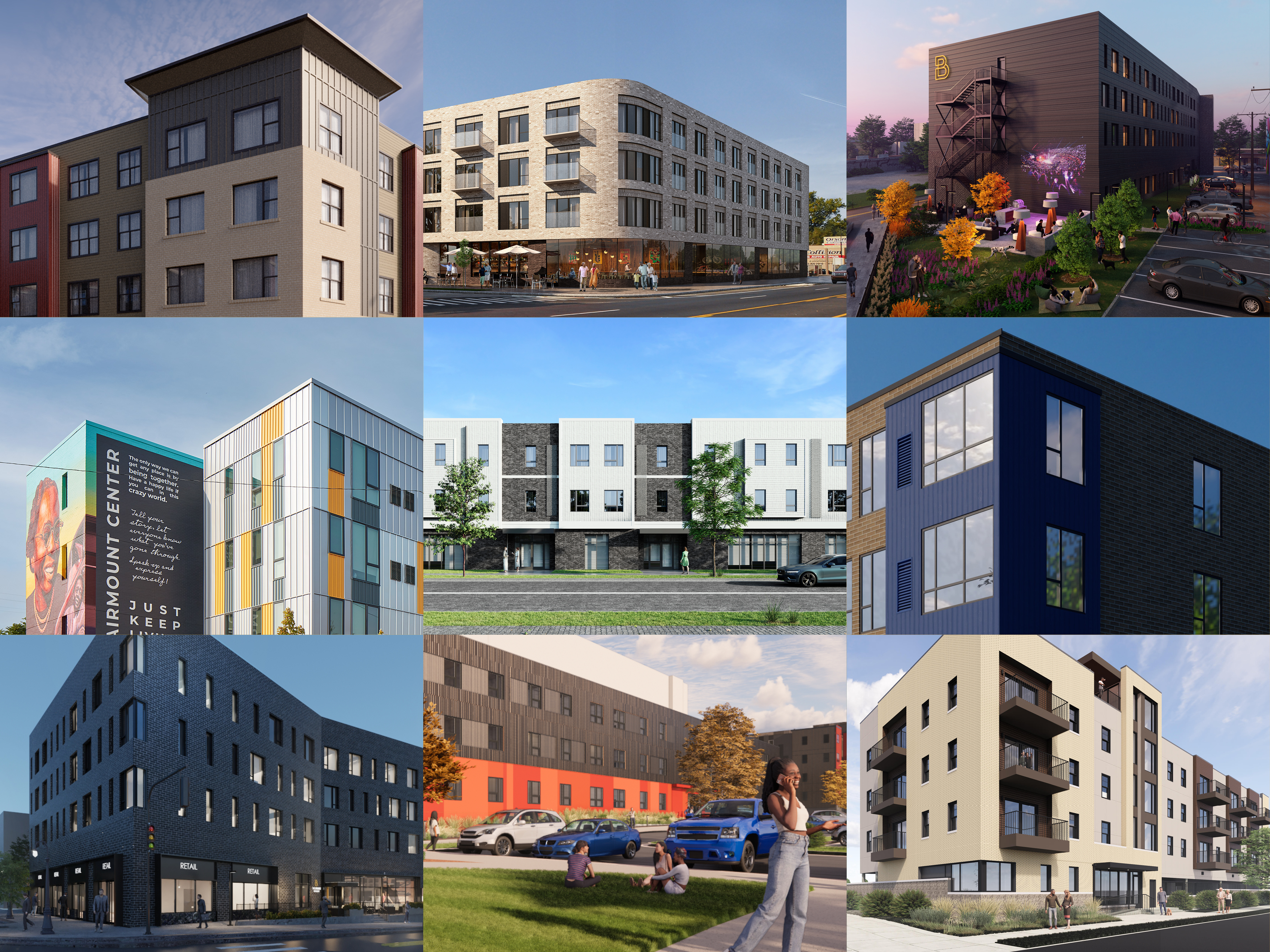
What Does the City of Detroit's Affordable Housing Plan Mean for Detroit's Future?
Detroit's long-lasting comprehensive affordable housing plan was created to serve the city for 30 years. The city, in partnership with state and federal programs, will pay 70% of affordable housing building costs.
"The City successfully renewed 10,000 of those housing units for another 30 years, " Mayor Duggan said. This approach is so successful, the city is repeating the process.
The affordable housing plan protects seniors and low-income residentsfrom housing displacement while providing avenues tobuild Black wealththrough homeownership.
By addressing blight and vacancy through demolitions and renovations of empty buildings into affordable living units, Detroit's affordable housing programs increased the viability and quality of life within its urban center.
The National Low Income Housing Coalition reports that, "Affordable housing is the keyto reducing intergenerational poverty and increasing economic mobility. "
As of 2024, Detroit has more homeowners than renters. This is an almost 4% increase from 2022. Within this narrowed gap, Black homeowners, in particular, are receiving more home loans.
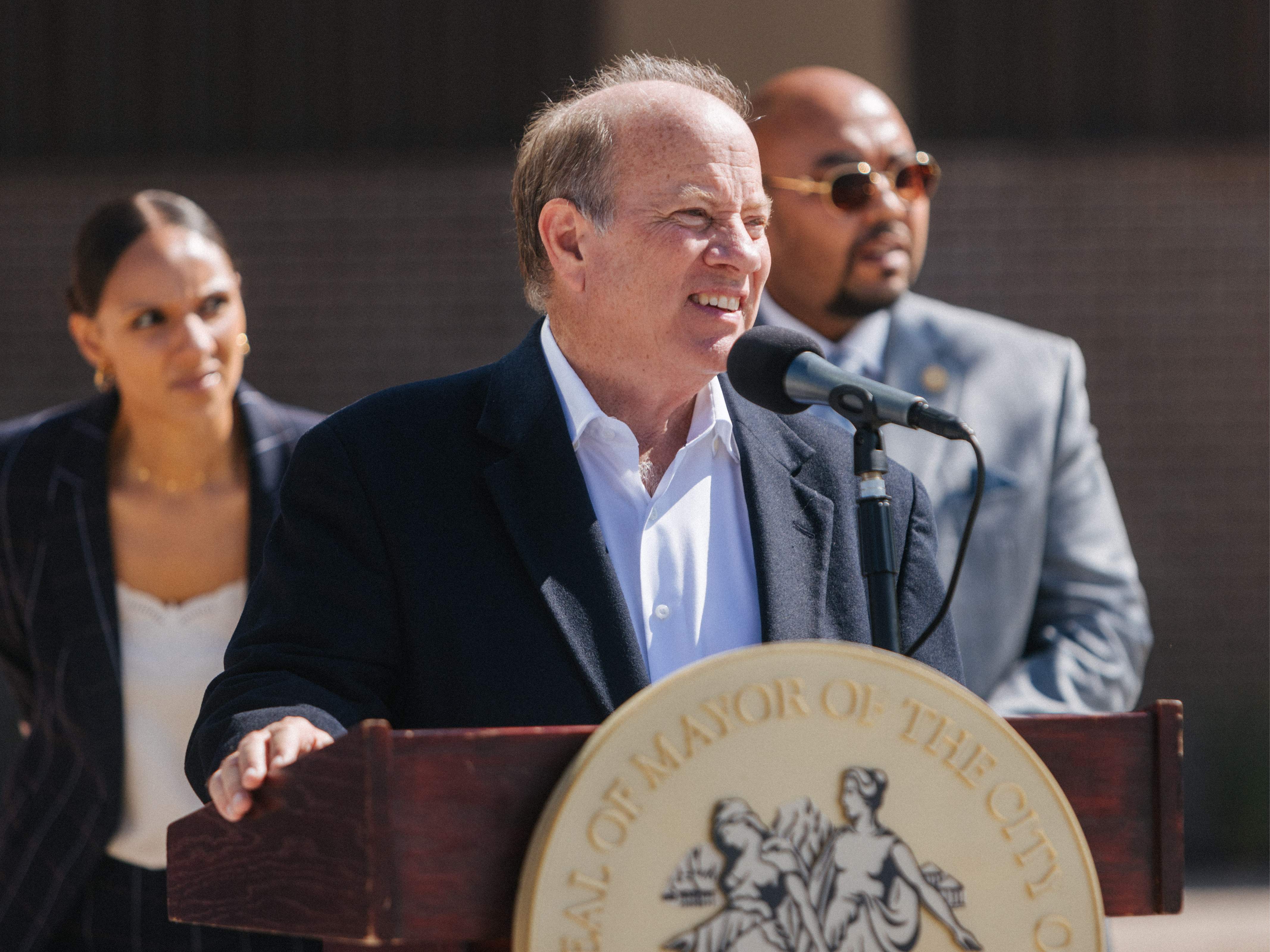
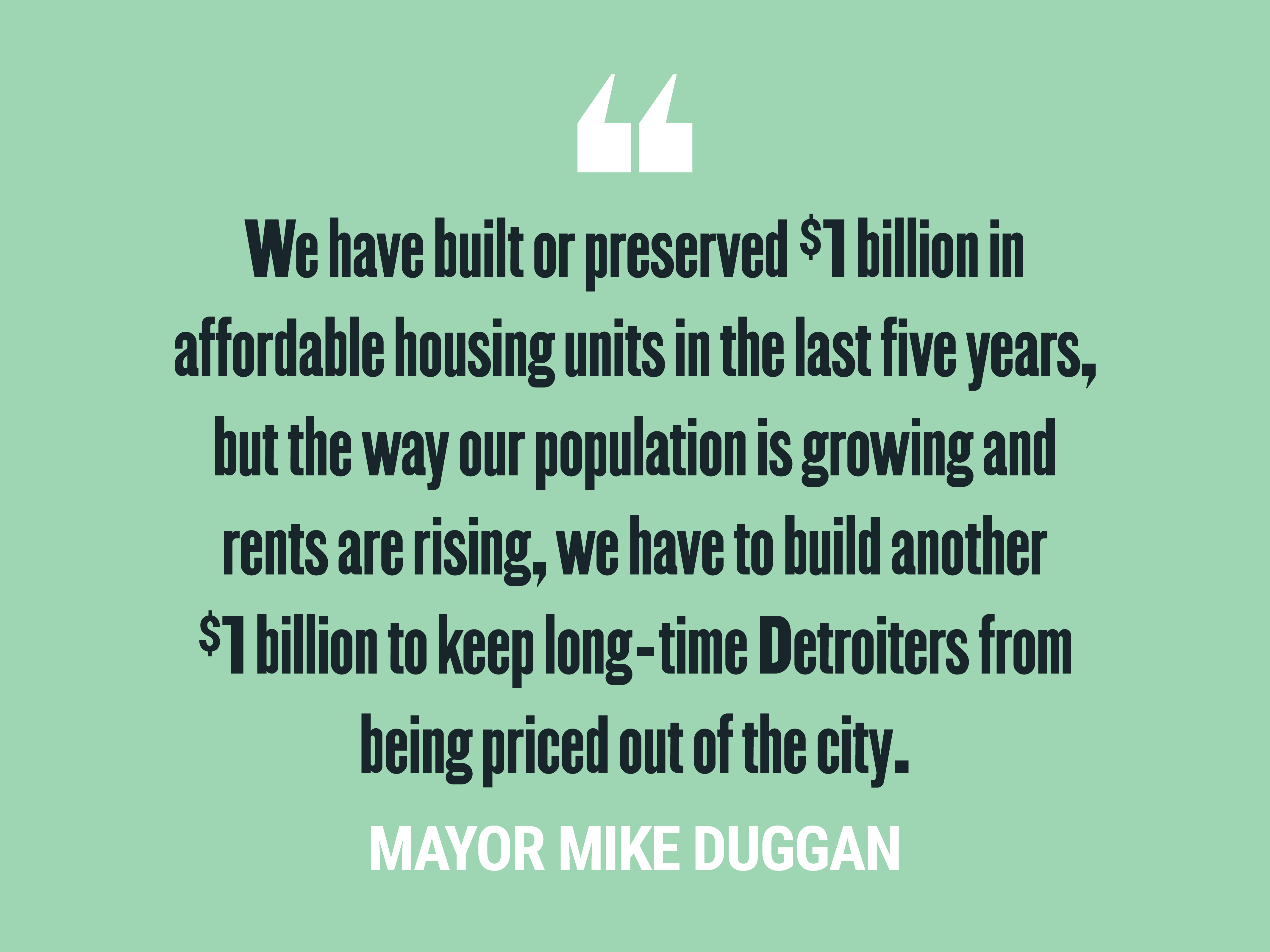
Facing Forward
Fast Track PILOT Program
In 2024, Mayor Duggan announced the city's plan for the next $1 billion investment in affordable housing. The Fast Track PILOT (Payment in Lieu of Taxes) program, approved in October 2024, expedites the affordable housing development in the city by cutting time-consuming steps, and giving developers tax breaks based on rent. The lower the rent, the deeper the tax cut. Eligible developers can receive up to a 15-year tax break with the option to renew as long as they commit to keeping rent affordable for households under 120% of the AMI. Mayor Duggan, in partnership with the City of Detroit, intends for the Fast Track PILOT program to keep long-time Detroiters from being priced out of the city.
Detroit's affordable housing initiatives are an example to a nation experiencing housing insecurity and high foreclosure rates. By systematically addressing the issues surrounding housing and homelessness, Detroit successfully changed the landscape of its city. By doing so, Detroiters are increasing their ability to build generational wealth.
